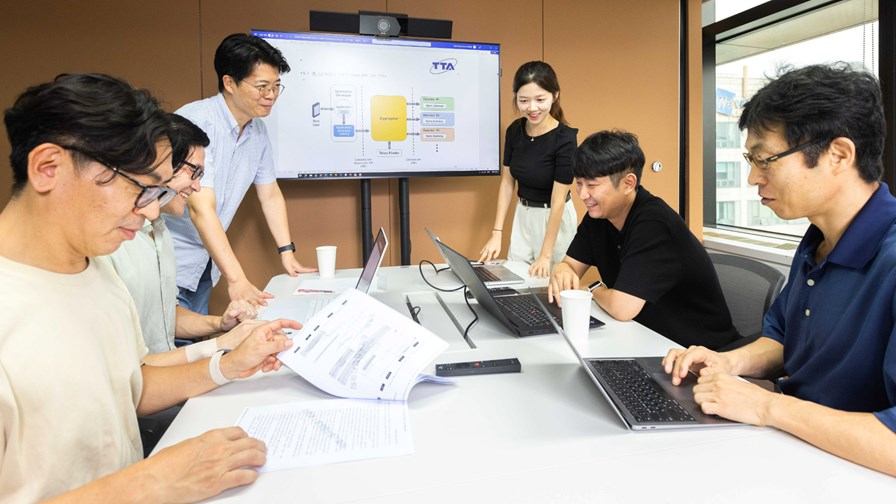
SK Telecom signs MoU with KT and LG U+ for Korean 'Network Open API' standard © SK Telecom
- Three largest South Korean mobile operators have signed an API pact
- Their aim is to become a catalyst for digital innovation growth
- But can they excite the network software developers?
Korea’s big three telcos – Korea Telecom (KT), South Korea Telecom (SKT) and LG Uplus – are to work together on application programming interface (API) interoperability. The companies have signed a memorandum of understanding (MOU) that binds them to pool their efforts rather than have each pursue its own varied API implementation.
According to Ryu Tak -Ki, head of SK Telecom’s infrastructure technology division, “The network is evolving from a role that provides simple connectivity to telco infrastructure [towards one that] creates new services with AI and various information-based APIs.”
The Korean telcos have, therefore, decided to unify their efforts to establish a common standard which, they claim, should lower the entry barrier and shorten the time required for development for the benefit of all. With the Korean mobile operators uniting around a single approach, it’s claimed, developers could more efficiently integrate their systems with the South Korean telecom infrastructures and users could experience more consistent service quality.
“We can provide new value to customers…ensuring that the three telecoms companies become the catalyst for digital innovation growth,” said LG Uplus head of network advanced development, Lee Sang-heon.
All three Korean telcos are already involved in efforts to promote API collaboration on a global scale through the likes of the open-source Camara project and the GSMA’s Open Gateway initiative and will continue to pursue collaboration on APIs with other international telcos, but by cutting to the chase to form a South Korean API cooperative to achieve tighter interoperability in South Korea (a very Korean industrial approach) they stand a good chance of boosting South Korean adoption above that of their international peers.
According to the consensus opinion on API success at TelecomTV Events (see the session ‘Unlocking platform opportunities with network APIs’, from this year’s DSP Leaders World Forum 2024), while a coordinated approach to standard APIs and gateways provides important technical groundwork, the real problem stalling full corporate API use, it was thought at the forum, owed much to lack of buy-in from the application developers. Not only did the fractured API ecosystems, with those incompatible APIs, put off developers attached to the write-it-once-sell-it-several-times business model mantra but, as the discussion above reveals, the old telco approach of ‘build it and they will come’ will no longer suffice. If they want to push their APIs, telcos need to get out and “meet developers where they are,” to sell the benefits. To find out more about what telcos think of open APIs, see Network APIs to spawn ‘endless apps’ – report.
– Ian Scales, Contributing Editor, TelecomTV
Email Newsletters
Sign up to receive TelecomTV's top news and videos, plus exclusive subscriber-only content direct to your inbox.




